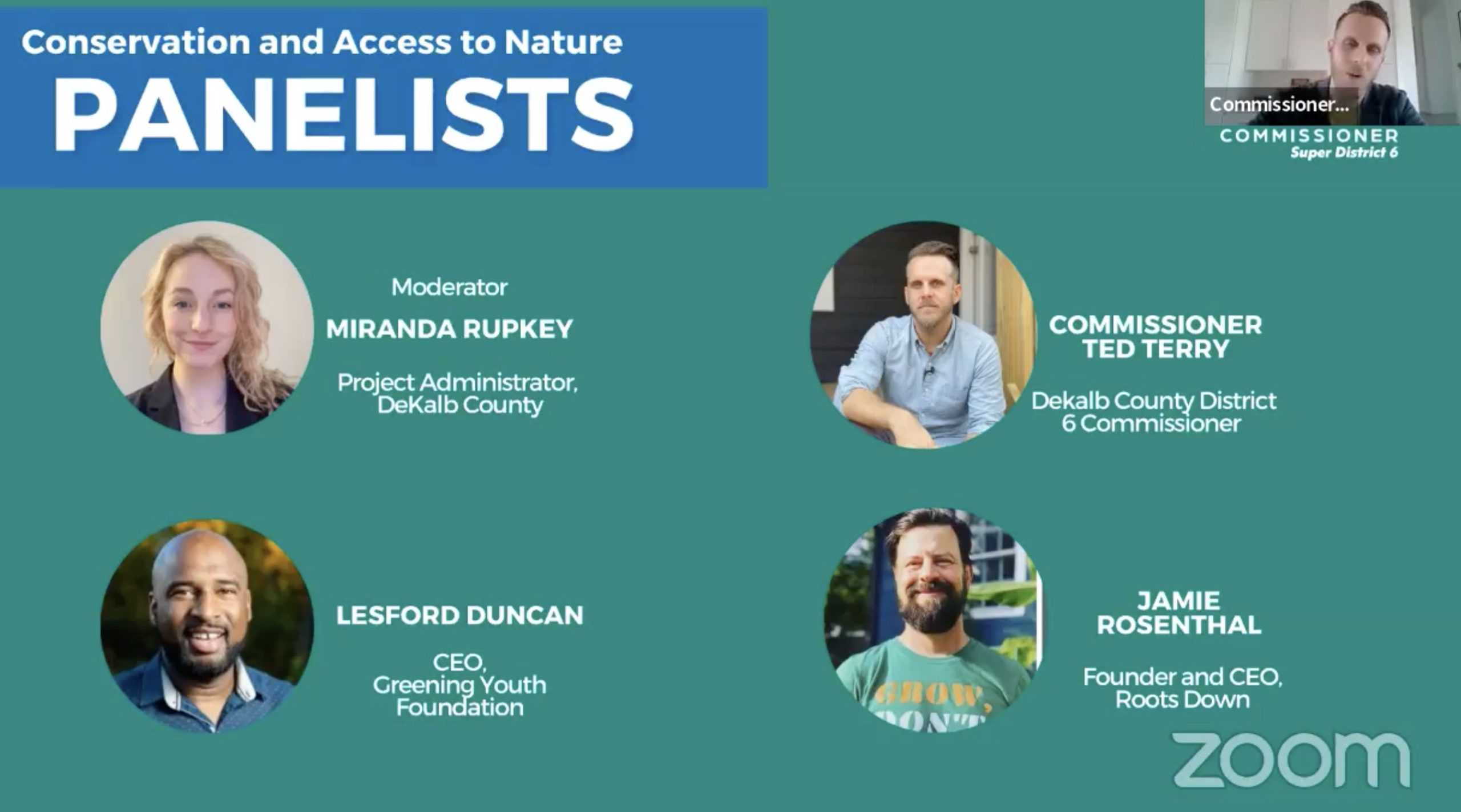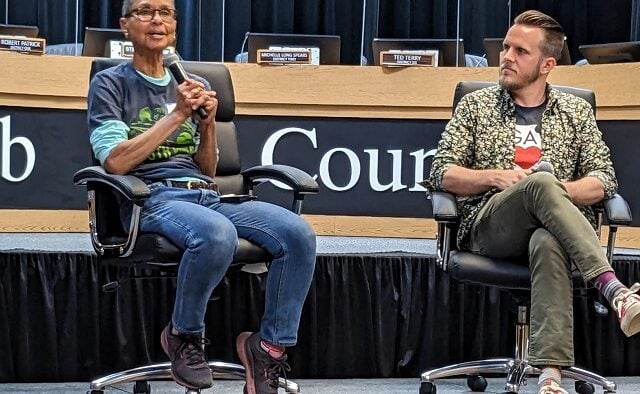Originally published by WABE
This coverage is made possible through a partnership with WABE and Grist, a nonprofit, independent media organization dedicated to telling stories of climate solutions and a just future.
As long as it works, a lot of people don’t think much about electricity beyond paying the bill. Plug something in, flip a switch, it turns on. But how that power is generated can have big consequences — for people’s power bills and for the planet.
There are lots of ways to make electricity: burning coal, gas, oil or wood; harnessing the power of the sun, the wind or running water; or using nuclear reactions.
Georgia Power, the state’s largest utility, uses all of them. And beginning next week, state regulators will hold a series of hearings to decide which of those sources to increase and which to phase out, laying out where most Georgians will get their electricity for the next 20 years.
“We have a diversified generation system in Georgia that gives us reliable, affordable and clean energy down the road,” said Bubba McDonald, one of the five Public Service Commissioners that will have the final say over Georgia Power’s Integrated Resource Plan, or IRP.
The utility plans for the future
The biggest changes Georgia Power wants to make are shutting down coal and adding solar. By 2030, the company plans to get nearly a third of its electricity from the sun, up from just 11% this year.
“We are showing how we are growing the level of renewable energy in our state and responding to the fast-changing needs of our customers while also protecting the environment and the communities we serve,” said Georgia Power President and CEO Chris Womack.
Renewable energy — like solar and wind — is key, because burning coal, gas or oil creates the greenhouse gasses that cause climate change. Scientists say people everywhere have to quickly and sharply cut down on those energy sources to avoid the worst impacts of climate change.
Despite the new solar, Bryan Jacob of the Southern Alliance for Clean Energy [SACE] said this plan isn’t good enough.
“The bad news is that Georgia Power has proposed as much fossil gas resource in this IRP as they did renewables,” he said.
While the proportion of renewables is going up, the company still plans to get a lot of its power from gas in 2030 — just as it does now. Jacob’s group is one of several hoping to change that.
Georgia Power’s plan is essentially a first draft. Before the Public Service Commission approves it, they’ll hear from environmental and clean energy organizations, consumer groups, companies that use a lot of energy and even a gas company.
Advocates push for changes
Along with calling for more energy from renewable sources, groups intervening in the IRP process plan to push for more energy efficiency programs and to raise other questions, not just about environmental concerns, but also about the costs to Georgia Power customers.
“While energy efficiency continues to be a least-cost resource, the utility is failing to pursue energy saving opportunities at levels that would bring the greatest value to customers,” said Forest Bradley-Wright of SACE.
The idea is that it’s cheaper to save energy than it is to make it. Georgia Power customers can lower their power bills by making changes that help them use less electricity: better insulation, more efficient heating and cooling systems, smart thermostats.
The utility’s proposal does call energy efficiency “a priority resource” and seeks to extend current energy efficiency pilot programs, but advocates said the company should do more.
“Georgia Power continues to lag national and regional peers in annual efficiency savings, which average two to three times higher than Georgia Power’s delivery,” Bradley-Wright said.
The power company’s plan also calls for more energy storage, which is vital for using more renewables. Solar farms, for instance, only generate electricity when the sun is shining, so it’s important to store the extra energy for use when it’s dark or cloudy.
According to the proposal, Georgia Power aims to own and operate 1,000 megawatts of storage capacity by 2030.
“Georgia Power wants to do it all themselves. So the question is, if you do need all of this storage, how much is that going to cost? And would the cost for doing that be cheaper if you allow third party non-incumbents to develop that?” said Katie Southworth of Southface Institute, a sustainability organization that’s intervening in the IRP.
Southworth also raised questions beyond climate concerns about Georgia Power’s plans to keep relying heavily on gas. She pointed to volatile natural gas prices on the global market — a concern in the headlines lately due to Russia’s invasion of Ukraine — and to problems with gas-powered electricity in Texas following a devastating winter storm.
“Continuing to beat the drum that [gas] is reliable and affordable, will always show up, you know, we’re seeing in real time that in the last few years, that has not been the case,” Southworth said.
Local governments get involved
For the first time this year, cities and counties that have made their own clean energy commitments are getting involved in the IRP process, too. Atlanta, Savannah, Athens, Decatur and DeKalb, and Fulton Counties are all intervening together.
“There’s only so much that the government, the local governments can do,” said DeKalb County Commissioner Ted Terry. He said local governments like his have the power to make some changes, like adding “our own electric vehicles, solar installations on government property, on fire stations, on libraries, on wastewater treatment plant lands.”
But Georgia Power is the only electricity provider in most of the state. If cities and counties can’t buy enough renewable energy from the utility, they can’t reach their goals.
Terry is optimistic about the process, because Georgia Power’s parent company, Southern Company, has announced the same clean energy goal as DeKalb County: net zero emissions by 2050.
“We all agree on the goal. Now we now need to get to the plan,” Terry said.
The PSC has a lot of power to shape that plan, which is updated every three years. Much of Georgia Power’s explosive increase in solar in recent years happened because the commission called for it.
Several rounds of hearings are scheduled on Georgia Power’s Integrated Resource Plan over the next few months. The PSC will make its final decision at the end of July.





